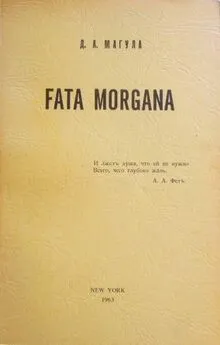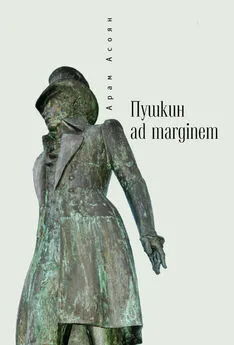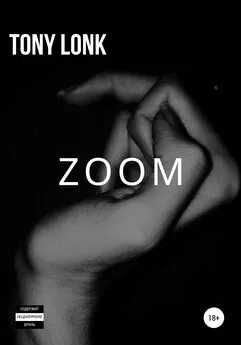Toni Morrison - Sula
- Название:Sula
- Автор:
- Жанр:
- Издательство:неизвестно
- Год:неизвестен
- ISBN:нет данных
- Рейтинг:
- Избранное:Добавить в избранное
-
Отзывы:
-
Ваша оценка:
Toni Morrison - Sula краткое содержание
Sula - читать онлайн бесплатно полную версию (весь текст целиком)
Интервал:
Закладка:
“Well, you stuck it under a train to collect insurance.”
“Hold on, you lyin’ heifer!”
“I aim to.”
“Bible say honor thy father and thy mother that thy days may be long upon the land thy God giveth thee.”
“Mamma must have skipped that part. Her days wasn’t too long.”
“Pus mouth! God’s going to strike you!”
“Which God? The one watched you burn Plum?”
“Don’t talk to me about no burning. You watched your own mamma. You crazy roach! You the one should have been burnt!”
“But I ain’t. Got that? I ain’t. Any more fires in this house, I’m lighting them!”
“Hellfire don’t need lighting and it’s already burning in you…”
“Whatever’s burning in me is mine!”
“Amen!”
“And I’ll split this town in two and everything in it before I’ll let you put it out!”
“Pride goeth before a fall.”
“What the hell do I care about falling?”
“Amazing Grace.”
“You sold your life for twenty-three dollars a month.”
“You throwed yours away.”
“It’s mine to throw.”
“One day you gone need it.”
“But not you. I ain’t never going to need you. And you know what? Maybe one night when you dozing in that wagon flicking flies and swallowing spit, maybe I’ll just tip on up here with some kerosene and—who knows—you may make the brightest flame of them all.”
So Eva locked her door from then on. But it did no good. In April two men came with a stretcher and she didn’t even have time to comb her hair before they strapped her to a piece of canvas.
When Mr. Buckland Reed came by to pick up the number, his mouth sagged at the sight of Eva being carried out and Sula holding some papers against the wall, at the bottom of which, just above the word “guardian,” she very carefully wrote Miss Sula Mae Peace.

Nel alone noticed the peculiar quality of the May that followed the leaving of the birds. It had a sheen, a glimmering as of green, rain-soaked Saturday nights (lit by the excitement of newly installed street lights); of lemon-yellow afternoons bright with iced drinks and splashes of daffodils. It showed in the damp faces of her children and the river-smoothness of their voices. Even her own body was not immune to the magic. She would sit on the floor to sew as she had done as a girl, fold her legs up under her or do a little dance that fitted some tune in her head. There were easy sun-washed days and purple dusks in which Tar Baby sang “Abide With Me” at prayer meetings, his lashes darkened by tears, his silhouette limp with regret against the whitewashed walls of Greater Saint Matthew’s. Nel listened and was moved to smile. To smile at the sheer loveliness that pressed in from the windows and touched his grief, making it a pleasure to behold.
Although it was she alone who saw this magic, she did not wonder at it. She knew it was all due to Sula’s return to the Bottom. It was like getting the use of an eye back, having a cataract removed. Her old friend had come home. Sula. Who made her laugh, who made her see old things with new eyes, in whose presence she felt clever, gentle and a little raunchy. Sula, whose past she had lived through and with whom the present was a constant sharing of perceptions. Talking to Sula had always been a conversation with herself. Was there anyone else before whom she could never be foolish? In whose view inadequacy was mere idiosyncrasy, a character trait rather than a deficiency? Anyone who left behind that aura of fun and complicity? Sula never competed; she simply helped others define themselves. Other people seemed to turn their volume on and up when Sula was in the room. More than any other thing, humor returned. She could listen to the crunch of sugar underfoot that the children had spilled without reaching for the switch; and she forgot the tear in the living-room window shade. Even Nel’s love for Jude, which over the years had spun a steady gray web around her heart, became a bright and easy affection, a playfulness that was reflected in their lovemaking.
Sula would come by of an afternoon, walking along with her fluid stride, wearing a plain yellow dress the same way her mother, Hannah, had worn those too-big house dresses—with a distance, an absence of a relationship to clothes which emphasized everything the fabric covered. When she scratched the screen door, as in the old days, and stepped inside, the dishes piled in the sink looked as though they belonged there; the dust on the lamps sparkled; the hair brush lying on the “good” sofa in the living room did not have to be apologetically retrieved, and Nel’s grimy intractable children looked like three wild things happily insouciant in the May shine.
“Hey, girl.” The rose mark over Sula’s eye gave her glance a suggestion of startled pleasure. It was darker than Nel remembered.
“Hey yourself. Come on in here.”
“How you doin’?” Sula moved a pile of ironed diapers from a chair and sat down.
“Oh, I ain’t strangled nobody yet so I guess I’m all right.”
“Well, if you change your mind call me.”
“Somebody need killin’?”
“Half this town need it.”
“And the other half?”
“A drawn-out disease.”
“Oh, come on. Is Medallion that bad?”
“Didn’t nobody tell you?”
“You been gone too long, Sula.”
“Not too long, but maybe too far.”
“What’s that supposed to mean?” Nel dipped her fingers into the bowl of water and sprinkled a diaper.
“Oh, I don’t know.”
“Want some cool tea?”
“Mmmm. Lots of ice, I’m burnin’ up.”
“Iceman don’t come yet, but it’s good and cold.”
“That’s fine.”
“Hope I didn’t speak too soon. Kids run in and out of here so much.” Nel bent to open the icebox.
“You puttin’ it on, Nel. Jude must be wore out.”
“ Jude must be wore out? You don’t care nothin’ ’bout my back, do you?”
“Is that where it’s at, in your back?”
“Hah! Jude thinks it’s everywhere.”
“He’s right, it is everywhere. Just be glad he found it, wherever it is. Remember John L.?”
“When Shirley said he got her down by the well and tried to stick it in her hip?” Nel giggled at the remembrance of that teen-time tale. “She should have been grateful. Have you seen her since you been back?”
“Mmm. Like a ox.”
“That was one dumb nigger, John L.”
“Maybe. Maybe he was just sanitary.”
“Sanitary?”
“Well. Think about it. Suppose Shirley was all splayed out in front of you? Wouldn’t you go for the hipbone instead?”
Nel lowered her head onto crossed arms while tears of laughter dripped into the warm diapers. Laughter that weakened her knees and pressed her bladder into action. Her rapid soprano and Sula’s dark sleepy chuckle made a duet that frightened the cat and made the children run in from the back yard, puzzled at first by the wild free sounds, then delighted to see their mother stumbling merrily toward the bathroom, holding on to her stomach, fairly singing through the laughter: “Aw. Aw. Lord. Sula. Stop.” And the other one, the one with the scary black thing over her eye, laughing softly and egging their mother on: “Neatness counts. You know what cleanliness is next to…”
“Hush.” Nel’s plea was clipped off by the slam of the bathroom door.
“What y’all laughing at?”
“Old time-y stuff. Long gone, old time-y stuff.”
“Tell us.”
“Tell you? ” The black mark leaped.
“Uh huh. Tell us.”
“What tickles us wouldn’t tickle you.”
“Uh huh, it would.”
“Well, we was talking about some people we used to know when we was little.”
“Was my mamma little?”
“Of course.”
“What happened?”
“Well, some old boy we knew name John L. and a girl name…”
Damp-faced, Nel stepped back into the kitchen. She felt new, soft and new. It had been the longest time since she had had a rib-scraping laugh. She had forgotten how deep and down it could be. So different from the miscellaneous giggles and smiles she had learned to be content with these past few years.
“O Lord, Sula. You haven’t changed none.” She wiped her eyes. “What was all that about, anyway? All that scramblin’ we did trying to do it and not do it at the same time?”
“Beats me. Such a simple thing.”
“But we sure made a lot out of it, and the boys were dumber than we were.”
“Couldn’t nobody be dumber than I was.”
“Stop lying. All of ’em liked you best.”
“Yeah? Where are they?”
“They still here. You the one went off.”
“Didn’t I, though?”
“Tell me about it. The big city.”
“Big is all it is. A big Medallion.”
“No. I mean the life. The nightclubs, and parties…”
“I was in college, Nellie. No nightclubs on campus.”
“Campus? That what they call it? Well. You wasn’t in no college for—what—ten years now? And you didn’t write to nobody. How come you never wrote?”
“You never did either.”
“Where was I going to write to? All I knew was that you was in Nashville. I asked Miss Peace about you once or twice.”
“What did she say?”
“I couldn’t make much sense out of her. You know she been gettin’ stranger and stranger after she come out the hospital. How is she anyway?”
“Same, I guess. Not so hot.”
“No? Laura, I know, was doing her cooking and things. Is she still?”
“No. I put her out.”
“Put her out? What for?”
“She made me nervous.”
“But she was doing it for nothing, Sula.”
“That’s what you think. She was stealing right and left.”
“Since when did you get froggy about folks’ stealing?”
Sula smiled. “OK. I lied. You wanted a reason.”
“Well, give me the real one.”
“I don’t know the real one. She just didn’t belong in that house. Digging around in the cupboards, picking up pots and ice picks…”
“You sure have changed. That house was always full of people digging in cupboards and carrying on.”
“That’s the reason, then.”
“Sula. Come on, now.”
“You’ve changed too. I didn’t used to have to explain everything to you.”
Nel blushed. “Who’s feeding the deweys and Tar Baby? You?”
“Sure me. Anyway Tar Baby don’t eat and the deweys still crazy.”
“I heard one of ’em’s mamma came to take him back but didn’t know which was hern.”
“Don’t nobody know.”
“And Eva? You doing the work for her too?”
“Well, since you haven’t heard it, let me tell you. Eva’s real sick. I had her put where she could be watched and taken care of.”
“Where would that be?”
“Out by Beechnut.”
“You mean that home the white church run? Sula! That ain’t no place for Eva. All them women is dirt poor with no people at all. Mrs. Wilkens and them. They got dropsy and can’t hold their water—crazy as loons. Eva’s odd, but she got sense. I don’t think that’s right, Sula.”
“I’m scared of her, Nellie. That’s why…”
“Scared? Of Eva?”
“You don’t know her. Did you know she burnt Plum?”
“Oh, I heard that years ago. But nobody put no stock in it.”
“They should have. It’s true. I saw it. And when I got back here she was planning to do it to me too.”
“Eva? I can’t hardly believe that. She almost died trying to get to your mother.”
Читать дальшеИнтервал:
Закладка:








